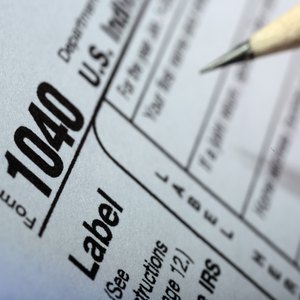
Once a tax return has been filed, it's not necessarily the end of the story. If you realize that your tax return was inaccurate, you may file an amended tax return using Form 1040X. This form, which must be filed on paper, allows you to do things such as claim further deductions, report additional income, change certain filing statuses and even choose to itemize deductions instead of taking the standard deduction.
No Minimum Value
In fact, there is no minimum value on the difference between an original and amended tex return; you could amend a tax return on the basis of a one-cent difference or no difference. Of course, you don't need to amend your tax return if you realize you should end up with a bigger refund.
In fact, according to Forbes, filing an amended return is not mandatory even if it turns out you should owe the IRS a bigger chunk of your income. However, it's still a good idea to amend if you underpaid the IRS, and you'll likely want to do so if you realize that you didn't claim all of the refund to which you were entitled. If you do owe money as a result of the changes, you will want to pay it as soon as you are able in order to minimize the interest and penalty fees that the IRS will want to charge you.
To File or Not to File
According to the IRS, not every mistake on your return requires an amended return. If you forgot to attach tax forms like W-2s or return schedules, the IRS will ask for them if it needs them. If you simply made a math error, the IRS can correct it for you without you needing to file a new return.
On the other hand, if there are changes to your income, your filing status or the deductions and credits that help offset your income, the IRS recommends you consider filing an amended return. You'll also want to file any schedules that have changed along with that main 1040X amended return form.
Time Limit
While there is no value limit when it comes to amending your taxes, there are time constraints. Outside of a few specialized cases, would-be tax amenders should file their new returns within three years of the date that they filed the original return, or within two years of the date they paid off the taxes owed on the original return.
If you have multiple 1040X forms to file for different tax years, the IRS recommends mailing each separately. Once your amended return is filed, you can track its status online.
References
- Where's My Amended Return? | Internal Revenue Service
- {'url': 'https://www.irs.gov/pub/irs-pdf/f1040x.pdf', '_id': 'https://www.irs.gov/pub/irs-pdf/f1040x.pdf', 'external_url': 'https://www.irs.gov/pub/irs-pdf/f1040x.pdf'}
- Internal Revenue Service. "Instructions to Form 1040X," Page 3. Accessed Jan. 6, 2020.
- Internal Revenue Service. "Instructions for Form 1040X," Pages 7-8. Accessed Jan. 6, 2020.
- Internal Revenue Service. "Instructions for Form 1040X," Pages 8-9. Accessed Jan. 6, 2020.
- Internal Revenue Service. "Form 1040X," Pages 1-2. Accessed Jan. 10, 2020.
- Internal Revenue Service. "Amended Returns." Accessed Jan. 10, 2020.
- IRS. "IRS announces Form 1040-X electronic filing options coming this summer; major milestone reached for electronic returns." Accessed July 9 2020.
- Internal Revenue Service. "Instructions for Form 1040X," Page 7. Accessed Jan. 6, 2020.
- Internal Revenue Service. "Instructions for Form 1040X," Page 3. Accessed Jan. 6, 2020.

